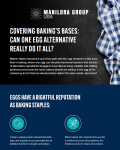Food as medicine continues to gain traction and inspire innovation post-pandemic

“We’ve seen unprecedented shifts and pressures on the CPG industry over the past two and a half years. These changes have really influenced consumer demand, and how manufacturers are responding in terms of new product development,” said Lisa Maas, principal and innovation practice lead at IRI.
Among the most influential shifts in shopping priorities during the pandemic was a gravitation to products that supported self-care as well as preventive health, including products ranging from mood management to immunity boosting, she told attendees at Prepared Foods’ 20th Annual Spirit of Innovation Awards.
“This really translated into a number of growing attributes and benefits … that span general wellness,” including functional benefits and low, no or free-from claims within the marketplace, she said.
For example, products making claims about essential vitamins are up 271%, while more specific physical health claims such as liver support are up 28% and immune support are up 14%, she said.
Emotional wellbeing, cognitive health claims attract shoppers
Claims related to emotional wellbeing are also up, but are bifurcated within the marketplace based on consumers’ age, according to Maas. She explained older consumers seek healthy aging support, such as memory retention or cognitive support claims, which are up 18%, while younger and middle age consumers seek mental acuity, sharpness and claims tied to personal and work demands.
“And then relating to brain health, we also continue to see a number of new products that are addressing stress and mood,” which are up 8% as well as claims about choline, which are up 50% and associated with brain health and the nervous system, she said.
Before the pandemic, immunity-boosting and mental wellness claims were concentrated on beverages and supplements, but in recent years have expanded to include more categories, said Inri Mouchette, senior director and head of innovation, Campbell Meals & Beverages.
“We are definitely seeing a continuation and need to address food as medicine, and just the role that food has to play in consumers’ lives in order to give them a holistic approach to wellness,” she said.
From protein to fiber: key ingredients associated with wellness gain traction
Mouchette explained that Campbell is taking advantage of this trend by leaning into the health benefits of soup, which many people already associate with food as medicine.
“Our Well, Yes brand, whose mission is really to provide those simple, delicious ways to actively nourish consumers’ overall wellness lifestyle … is actively innovating to deliver convenient wellness solutions across the soup and sipping lines,” with callouts for digestive health and fiber gaining popularity, she said.
She added on the sipping side of the business “we see a bit more appeal against protein, antioxidants and … those essential vitamins and minerals within meals.”
Energy also continues to be a high-growth benefit that consumers are seeking, as well as immunity, digestion, and prebiotics for physical well-being, and for mental well-being consumers are looking for claims around calmness and relaxation, she said.
One category that consumers increasingly understand to address physical and mental-well being is fiber, said Barb Stucky, chief innovation and marketing officer at Mattson.
“Fiber is like the last macronutrient that has yet to really have its day in the sun, and as consumers understand and really start to believe in the gut-brain connection, I think you’re going to see a lot more fortification with fibers,” including functional fibers and for dietary purposes, such as prebiotic benefits to enhance probiotic health, she explained.



















